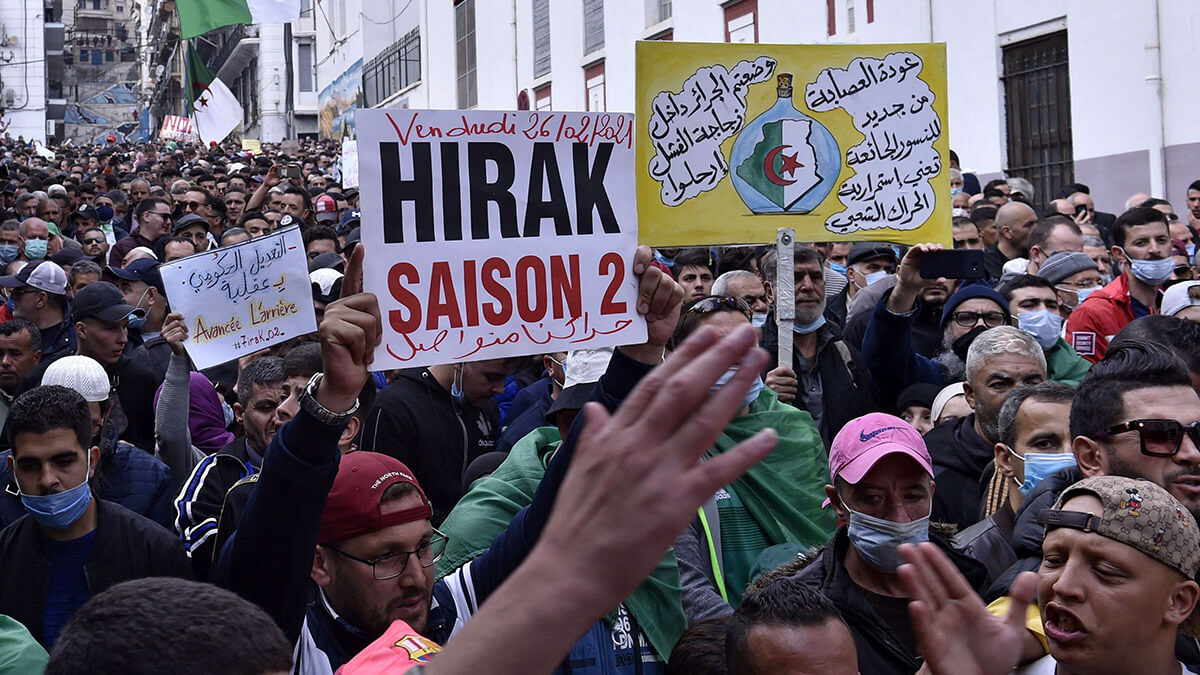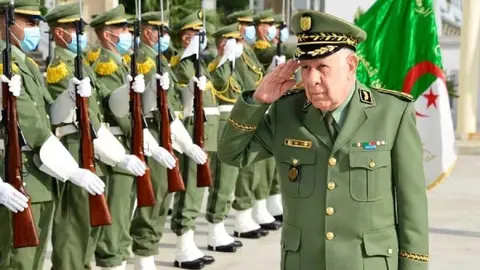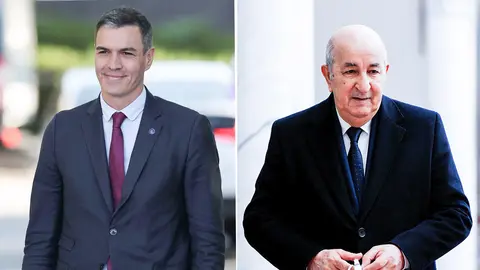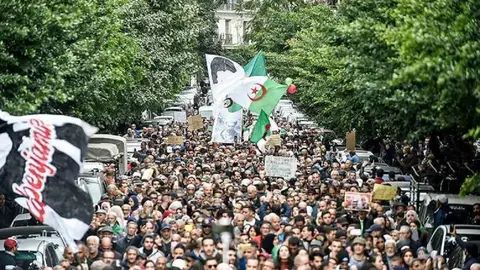Intimidation of Karim Tabbou, one of Algeria's leading political opponents, continues

Karim Tabbou, spokesman for the Democratic and Social Union (UDS), was astonished to discover at 3am that his car, parked a few metres from his home, had been ransacked and thoroughly searched. We cannot conclude that this was an act of vandalism or theft for the simple reason, as he points out in a video posted on his Facebook page, that, out of about twenty cars, only his car was visited at night by these strange creatures who had a message for him. It was a message of intimidation to warn him against any attempt at public demonstration at a time when those in charge in the shadows are manoeuvring to prepare for the presidential elections of December 2024.
Karim Tabbou, a graduate in economics from the University of Tizi Ouzou, is married with a son and a daughter, and was a militant of the Front des Forces Socialistes (FFS), founded by the late Hocine Aït-Ahmed, one of the historic members of the outbreak of the War of Independence. He chaired the FFS from 2006 to 2011 before founding the UDS, which the government refused to grant accreditation to.
On 11 September 2019, he was arrested by agents of the security services at his home in Douera (western suburb of Algiers). He was accused of "undermining the morale of the army" for statements he made on 8 May 2019 in Kherrata, the historic town where the demonstrations of 8 May 1945 took place.
He was released on parole on 25 September 2023, and re-arrested the following day. The new charges relate to a call for demonstrations on the occasion of Independence Day, 5 July, as well as posts on Facebook. He has since been held in solitary confinement. His lawyers claim that Tabbou was subjected to violence and insults by his jailers.
His pre-trial detention was extended on 20 January. On 11 March, he was sentenced to one year's imprisonment, six years suspended, and fined on charges of "undermining army morale" and "undermining national unity", and was released from prison on 25 March. On the eve of his release, on 24 March, he was sentenced on appeal to one year's imprisonment on conditions contested by his lawyers, which prevented his release.
Although the prosecutor had appealed the first conviction, his trial was scheduled after the ministry adjourned the proceedings from 16 to 31 March. The European Parliament called his conviction "incomprehensible" and "contrary to the rule of law", adding that "the conviction of Karim Tabbou on appeal yesterday, in the absence of his lawyers, is contrary to his right to a fair trial under Algerian law and international conventions ratified by Algeria". He was released on bail on 2 July.
His second trial - postponed several times - took place on 30 November 2020. He was finally sentenced to a one-year suspended prison term; the charge of "damaging the image of the army" was dropped, as the charges had been reclassified as "incitement to violence".
He was released on 29 April 2021 under judicial control of the investigating judge of Bir Mourad Raïs court. Karim Tabbou is accused of "incitement to an unarmed gathering", "insulting", "insulting a public body in the exercise of its functions", "violating the respect due to the dead in cemeteries", "taking and publishing images without authorisation" and "undermining national unity". Accusations ready to be levelled against all political opponents.
On 10 June 2021, he was arrested just 48 hours before the early legislative elections in Algeria on 12 June.
On 29 April 2022, the Algerian League of Human Rights (LADDH) announced the arrest of Karim Tabbou: "The reasons for this new arrest are still unknown", declared the human rights organisation.

On 23 May 2023, he was re-arrested and placed in police custody, and subsequently placed under judicial supervision on 25 May 2023, without the reasons being known. Lawyers were informed that four charges had been filed against him, but no further details were given.
Firm action is being taken against leading figures in the hirak, the popular protest movement that aborted Bouteflika's re-election for a 5th term. With presidential elections a year away, a strong play is being made to prevent the resurgence of the hirak, which was barely halted by the Covid 19 pandemic.












